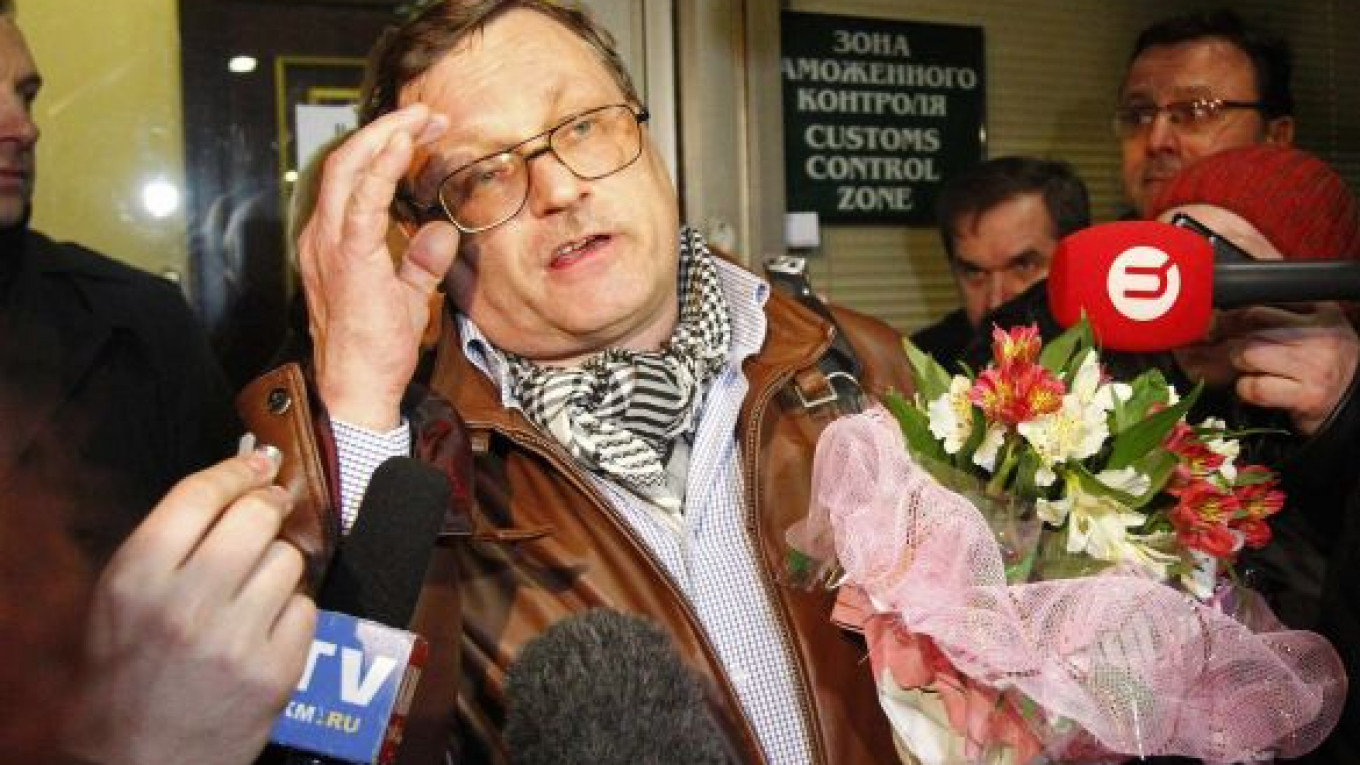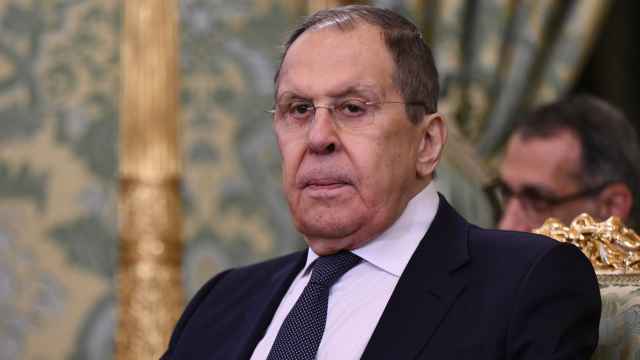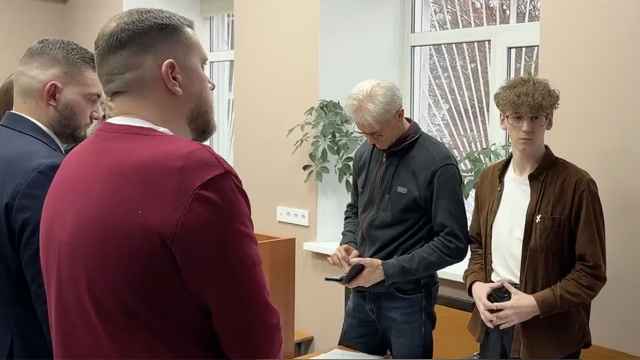An ambassador fired by President Dmitry Medvedev suggested in remarks published Thursday that Russia had betrayed its interests in Libya, the latest sign of discord over Moscow's response to the upheaval.
Vladimir Chamov denied Internet media reports that he had provoked his dismissal this month as Russia's ambassador to Libya by calling Medvedev a traitor.
But he told Moskovsky Komsomolets that risking lucrative ties with Moammar Gadhafi's government "can be considered a betrayal of Russia's interests."
Russia has said it will lose $4 billion in weapons deals in Libya as a result of an arms embargo that it backed. Russian companies have invested hundreds of millions of dollars in oil and gas exploration there, and Russian Railways was building a railway under a 2.2 billion euro ($3.1 billion) contract.
Russia backed United Nations sanctions against Gadhafi and his government earlier this month and abstained in the Security Council vote last week that authorized a no-fly zone, allowing armed intervention by a Western coalition.
Medvedev rebuked Prime Minister Vladimir Putin on Monday for comparing the Western calls for action to medieval crusades, although Putin's spokesman said later that the prime minister was expressing his personal opinion, not Russia's official policy.
Chamov, who has not been dismissed from the Foreign Ministry, denied reports that he had called Medvedev a traitor in a telegram from Tripoli, both in remarks upon his return to Russia on Tuesday and in the interview.
However, he told the newspaper that he had sent a telegram emphasizing that he was representing Russia's interests in Libya.
"Our countries have been pursuing close cooperation in recent times, and it is not in Russia's interests to lose such a partner," Chamov was quoted as saying in the interview. "Russian companies concluded contracts for several years ahead worth tens of billions of euros, which we could lose and we have lost. This in a certain sense can be considered a betrayal of Russia's interests."
Chamov declined to comment on whether Russia should have used its veto power as a permanent UN Security Council member to block the resolution authorizing armed intervention, saying it was "not my business."
Putin's criticism of the resolution has raised the question of whether he advocated a veto, but Putin said Tuesday that Medvedev is responsible for foreign policy as president and that "there can be no division there."
Analysts say Russia did not want to jeopardize its improving ties with the United States and Europe by blocking the resolution, which would also have hurt its chances of maintaining an economic foothold in Libya in the future.
A Message from The Moscow Times:
Dear readers,
We are facing unprecedented challenges. Russia's Prosecutor General's Office has designated The Moscow Times as an "undesirable" organization, criminalizing our work and putting our staff at risk of prosecution. This follows our earlier unjust labeling as a "foreign agent."
These actions are direct attempts to silence independent journalism in Russia. The authorities claim our work "discredits the decisions of the Russian leadership." We see things differently: we strive to provide accurate, unbiased reporting on Russia.
We, the journalists of The Moscow Times, refuse to be silenced. But to continue our work, we need your help.
Your support, no matter how small, makes a world of difference. If you can, please support us monthly starting from just $2. It's quick to set up, and every contribution makes a significant impact.
By supporting The Moscow Times, you're defending open, independent journalism in the face of repression. Thank you for standing with us.
Remind me later.






